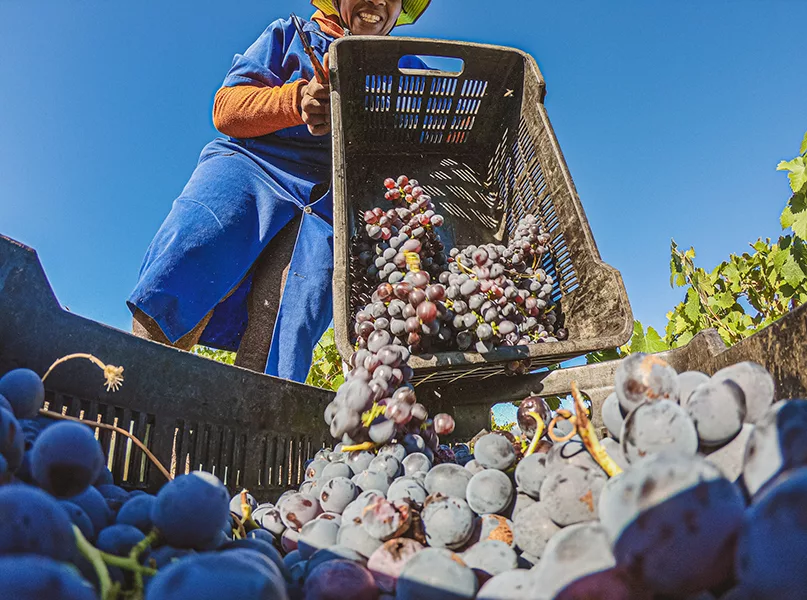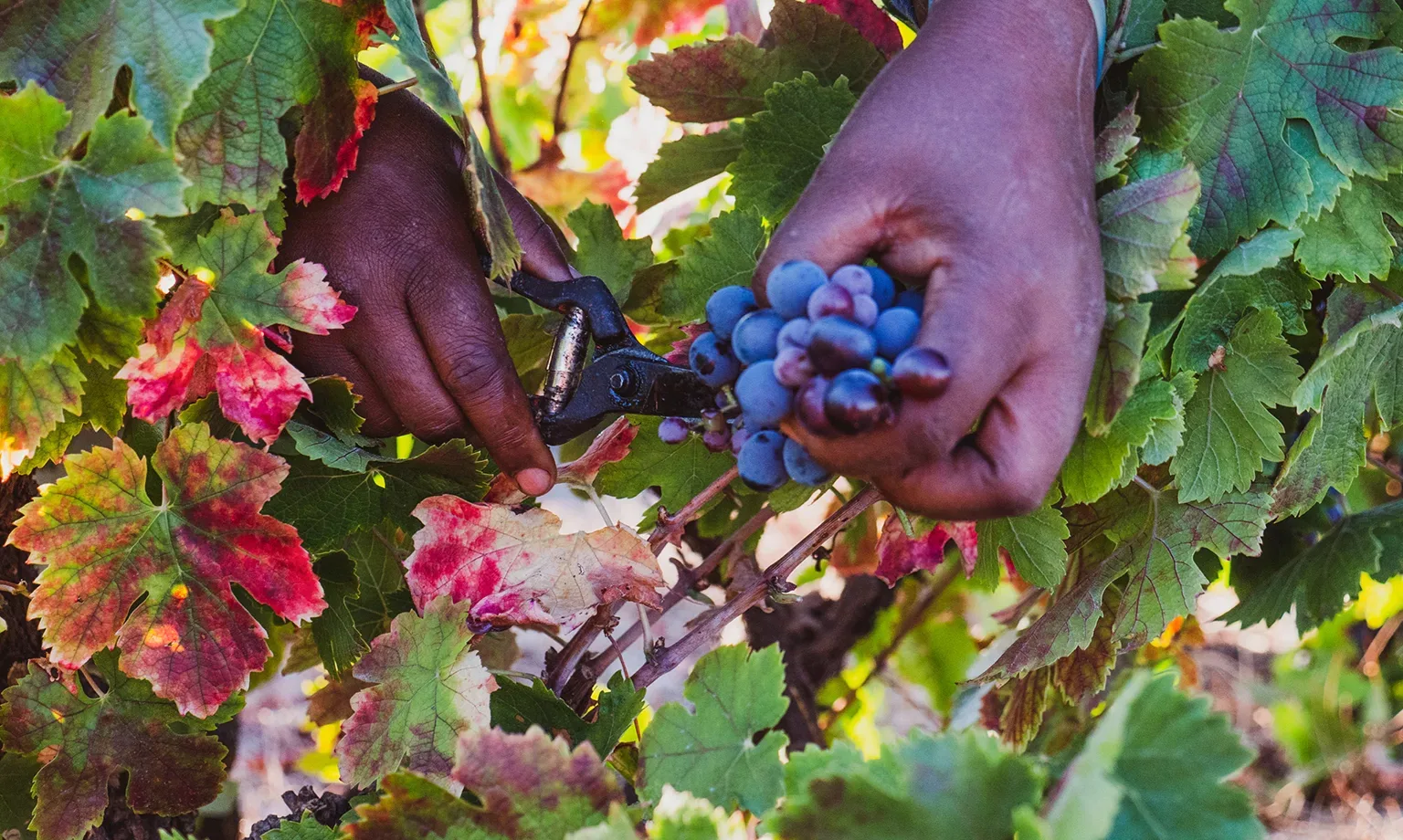Hailing from South Africa’s rugged Swartland, Lubanzi Wines is a socially conscious producer that endeavours to serve as a powerful force for good. We find out more with co-Founder, Charlie Brain.
Q&A WITH CHARLIE BRAIN, CO-FOUNDER, LUBANZI WINES
Firstly, please introduce us to Lubanzi Wines as a socially conscious, sustainable wine producer?
Charlie Brain, co-Founder (CB): Lubanzi Wines (Lubanzi) was founded in 2016 by myself, my good friend Walker Brown, and a community of winemakers, farm labourers, and humanitarians. Our focus is pretty simple – to produce well-made wines that punch above their weight, and in the process, are a real force for good in the world.
Can you elaborate upon how Lubanzi is built on the notion of not only making great wine, but also pioneering a more equitable and sustainable supply chain?
CB: We believe in a better way of doing business. For us, that means taking people and planet as central and critical stakeholders in everything we do, and paying homage to the importance of their place in the supply chain.
Mostly, it just comes from a place of love for South Africa and wanting – and feeling a duty – to have Lubanzi be a force for real and meaningful social good in a place that we love and feel an obligation to personally.
Everything we do to pioneer a more sustainable and equitable supply chain flows from that – whether it’s our commitment to fair trade farming, offsetting our carbon footprint, giving away one percent of sales to support environmental non-profits, eliminating single use plastics from our supply chain, or returning half of our profits to fund healthcare and education programmes for those working on wine farms and their families.
Our focus isn’t just on making great wine, but also on building what we consider a more equitable and sustainable supply chain than is the norm in our industry.
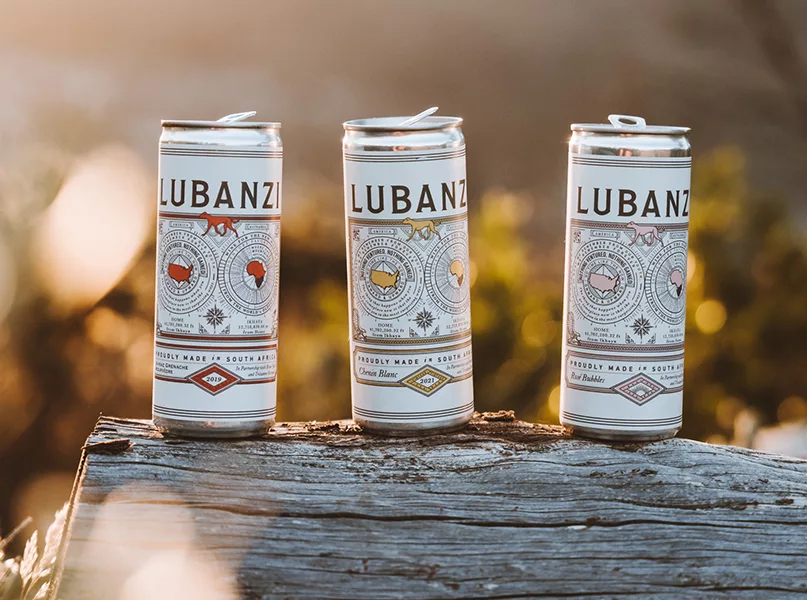
Can you tell us more about Lubanzi’s belief that people should be in touch with what they consume, to understand how a product impacts the world from farm to table?
CB: We feel, as consumers and business owners, that we all have a responsibility and a right to understand not only what we’re buying, but who we’re buying from and how what we’re purchasing affects the world around us.
For us, it’s about seeing products as more than just a means to an end. It means not only understanding whether the wine you’re buying is sustainably farmed or not, but also understanding whether it’s from an independent supplier or a large corporate.
It’s about not only asking whether a wine has added sugar or not, but also asking if the company is employee-owned or not. It’s about asking deeper questions as consumers and communicating more wholistically as businesses when it comes to who we are, what we do, and how we do it.
As per your mission statement, how was Lubanzi built to share the magnetism of South Africa and make a difference in the lives of those who live and work on the country’s wine farms?
CB: The story of Lubanzi – two friends on a far-flung adventure backpacking along South Africa’s coast with a stray dog in tow – starts with a love and a passion for South Africa itself, the people, the culture, and the tapestry of the place.
It just turns out that wine is such an incredible proxy for that in some ways. A tactile concoction of the combination of people and place, it became this incredible avenue to share a slice of the magnetism of South Africa as a country. You really do become fanatical about the winemaking over time, and that certainly happened to us, but we came here first and foremost because we love this place and wanted to share it. I’m not sure I necessarily ever expected to work in wine, but all the best things to do seem to happen by surprise.
That same story – through our commitment to donate 50 percent of our profits – ends with the money we make not just being for ourselves, but for those who live and work on the country’s wine farms. One day in the distant future, when we’re long gone, that’ll hopefully be the story that lingers on.
“The story of Lubanzi starts with a love and a passion for South Africa itself, the people, the culture, and the tapestry of the place”
Charlie Brain, co-Founder, Lubanzi Wines
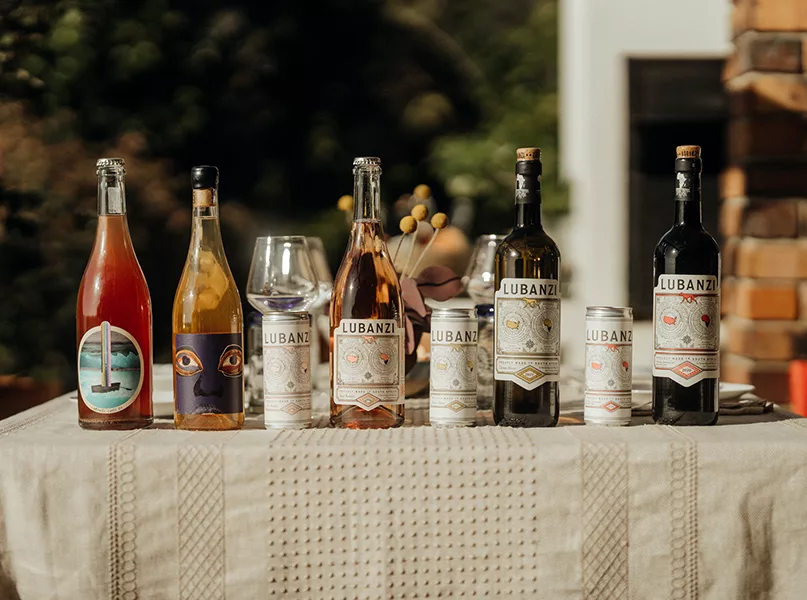
Can you tell us more about your Fair for Life, B Corp, and Climate Neutral certifications, as well as your commitment to giving 50 percent of net profits to the Pebbles Project?
CB: We’ve embraced a real multitude of commitments over the years that demonstrate our commitment to living the values we speak about.
Through Fair for Life, we’re not just making sure that working conditions on these farms are up to par, but we’re committing to paying a premium on all the grapes that go into our wines.
This premium is paid directly into cooperative funds owned by the workers on each respective farm. These premiums are meaningful in their size, and just last year, generated a 15 percent increase alone in compensation to workers on average. That’s almost two months of additional wages, which is a real difference maker.
Additionally, we have a commitment to donate 50 percent of net profits back to the Pebbles Project. They are a non-profit organisation that focuses on healthcare and education programmes for those living and working on South Africa’s wine farms.
As our business has grown over the last seven years, so has our commitment to the Pebbles Project. We’re now proud to sponsor 12 early childhood education centres throughout the winelands, a mobile learning centre that works with special needs kids in these 12 centres on additional learning objectives, year-round private medical and dental care for over 100 adults and 40 children, and a skills training programme for nearly 40 young adults.
We also work with Climate Neutral on an annual deep assessment of our carbon emissions from grape to glass, and then offset all those emissions by supporting carbon removal projects. At the same time, we’re working to find ways to reduce our carbon footprint, like removing all single use plastics from our supply chain moving forward.
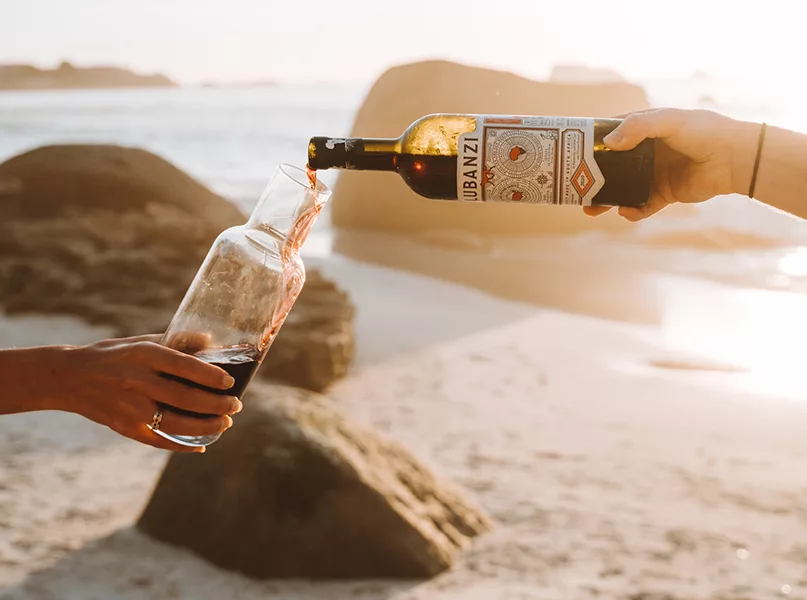
Finally, what about your proud membership of 1% for the Planet, in which you contribute at least one percent of annual sales to environmental causes?
CB: 1% for the Planet was an initiative founded in 2002 by the founders of Patagonia and Blue Line Co. The idea is simple – companies should pay a tax to compensate for the effect they have on the natural world.
In the same way that we all pay taxes to our government for our streets, sewer, electricity, safety, and so much more, we ought to be paying a tax to non-profit organisations who are working to repair and mitigate the effect business has on our planet.
We were proud to join 1% for the Planet in 2020, and since joining have focused our energy on supporting two causes we believe in – urban greening and native reforestation in the Western Cape in order to revitalise our own surrounding area, and renewable energy infrastructure projects.
THE STORY BEHIND THE LUBANZI NAME
Lubanzi was named after a wandering dog that followed Brain and his friend on a six-day, 100-mile hiking trip across a beautiful stretch of South Africa’s eastern coast.
They chose the name because of a belief in the power of adventure and its ability to bring meaning and joy to life. Whether that adventure is as grand as a 100-mile backpacking expedition, or as simple as trying a new restaurant – what’s important is to continue searching and being open to what the world has to offer.
“We hope that belief and those ideas are what people take away from Lubanzi, as much as the quality of our wine, or our commitment to sustainability,” says Brain.
More from Africa Outlook
